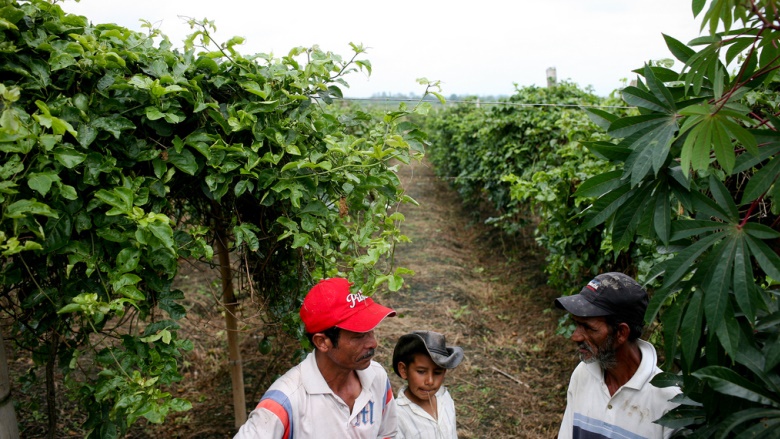Challenge
Colombia experienced strong economic growth between 2002 and 2012. However, the country’s persistently high inequality limited the effect of growth on poverty reduction. Although more households are now middle class, a substantial number are vulnerable to falling back into poverty. In addition, poverty remains high in rural areas.
Solution
Within this context, the government is undertaking further efforts to address poverty and inequality through the 2010-2014 National Development Plan (NDP), “Prosperidad para Todos” and the 2014-2018 NDP “Todos por un nuevo pais.” Promoting shared prosperity and eradicating poverty require comprehensive equity diagnostics, policies which effectively promote these values, and a robust monitoring and evaluation system to ensure that sustainable impacts are being made. In support of these goals, the objective of the World Bank’s multi-year engagement, Colombia Poverty and Equity Programmatic Approach was to collaborate with the government of Colombia to design and implement policies and institutions to achieve a significant reduction of inequality.
Results
The engagement achieved significant results in knowledge deepening, informing policy and strategy formulation, and increasing client capacity. The government improved its understanding of how reforms, policies, and institutions affect social outcomes, particularly equity.
Through a set of knowledge, financial, and convening services under the Colombia Poverty and Equity Programmatic Approach, and particularly through the Colombia Equity Day and the Colombia Enhancing the Fiscal Capacity to Promote Shared Prosperity Development Policy Loan, the multi-sectoral Bank team effectively supported the government’s efforts to accelerate progress towards improving fiscal, territorial, and gender equity. Colombia Equity Day was a one-day, closed-door workshop, held in March 2013, with high-level representatives of the Colombian government, World Bank managers and country directors, academics and international experts. This workshop enabled conversations between decision-makers and international experts about Colombia’s equity challenges and how the World Bank could support the government. This workshop and the Bank’s subsequent engagement led to the $600 million loan, Enhancing the Fiscal Capacity to Promote Shared Prosperity Development Policy Loan.
Bank Group Contribution
The package of services provided under the Colombia Poverty and Equity Programmatic Approach has led to increased collaboration with the government in advancing the prosperity agenda. The Colombia Equity Day workshop allowed the Bank to disseminate and discuss comprehensive results around a number of equity diagnostics and policies aimed at promoting shared prosperity in a sustainable and impactful way. The Equity Day workshop and subsequent engagement led to the identification of priority policy areas fundamental to reducing the high and persistent inequality in Colombia.
Partners
The Bank maintains a strong partnership with the Ministry of Finance and Public Credit, the National Planning Department, and the National Statistical Institute DANE. Additional counterparts included the National Directorate of Taxes and Customs, the Department for Social Prosperity, the Colombian Institute for Family Welfare, the Ministry of Labor, Banco de la República in Medellín, Consulting and Economic Studies (ECONSTUDIO), and the Commitment to Equity (CEQ).
Moving Forward
To contribute further relevant inputs to Colombia’s equity agenda, the Bank will continue its work in the country. Some of the proposed activities under the new program will include a distributional analysis of the peace process and a poverty and shared prosperity diagnostics of Colombian rural areas. These are particularly relevant given the National Development Plan (2014-2018), which places a strong emphasis on the peace process and rural development.
Beneficiaries
The government of Colombia benefitted directly from these activities through better understanding of the poverty and equity effects of key policy areas. These areas included the tax system, equality of opportunities, convergence and regional development, gender equality, social risk management and monitoring and evaluation.
